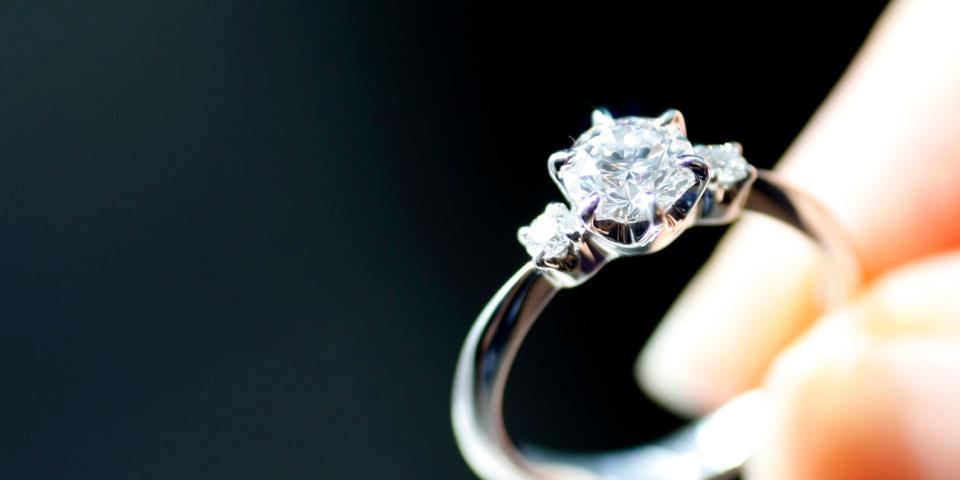Diamond markets are tumbling because Americans love lab-grown stones

A surge in demand for lab-grown stones has weakened a key corner of the diamond market, Bloomberg reported.
Diamond demand has softened since the pandemic, but the rough-diamond market has seen sharp price drops.
Prices for synthetic stones have seen bigger discounts as well.
The rising popularity of choosing lab-grown stones for engagement rings is cutting into the market for one of the world's most popular type of rough diamonds, according to a Bloomberg report.
While demand for diamonds and luxury goods at large has softened since the pandemic, the diamonds used in lower-priced bridal rings have seen a sharp drop in prices.
Diamond giant De Beers, for example, has had to slash prices by more than 40% in a category called "select makeables," or rough diamonds between 2 and 4 carats that can be furnished in bridal rings that are high quality but not perfect, Bloomberg reported.
Last June, the company charged about $1,400 a carat for the select makeable cuts. By July 2023, that fell to about $850 a carat — and secondary market prices remain even 10% lower than that, which could mean more downside ahead.
Engagement rings themselves won't likely see widespread declines in value, as the prices drops have stayed within the diamond trade.
But synthetic stones are taking a bigger share of the diamond market. In India, where most of the world's supply is cut and polished, synthetic stones made up 9% of diamond exports in June, up from 1% a year ago.
Lab-grown stones are faster-made, cheaper, and more environmentally friendly alternative to mined diamonds. While they aren't a new threat to the traditional mining industry, experts wonder whether crashing demand for natural diamonds signals a long-term trend.
But De Beers' head of diamond trading, Paul Rowley, told Bloomberg that he doesn't anticipate a structural shift in the market, and he instead views the current landscape as simply a temporary dip in demand.
"We see the real issue as a macroeconomic issue," he said.
To be sure, the lab-grown industry is seeing even bigger price drops. Five years ago, synthetic diamonds sold at a 20% discount to natural stones. Now, they sell for about 80% less.
Rowley told Bloomberg that increasing lab-grown supplies will weigh on prices further, and help differentiate it from the natural market even more.
"Ultimately," he said, "they are different products and the finite and rarity of natural diamonds is a different proposition."
Read the original article on Business Insider
